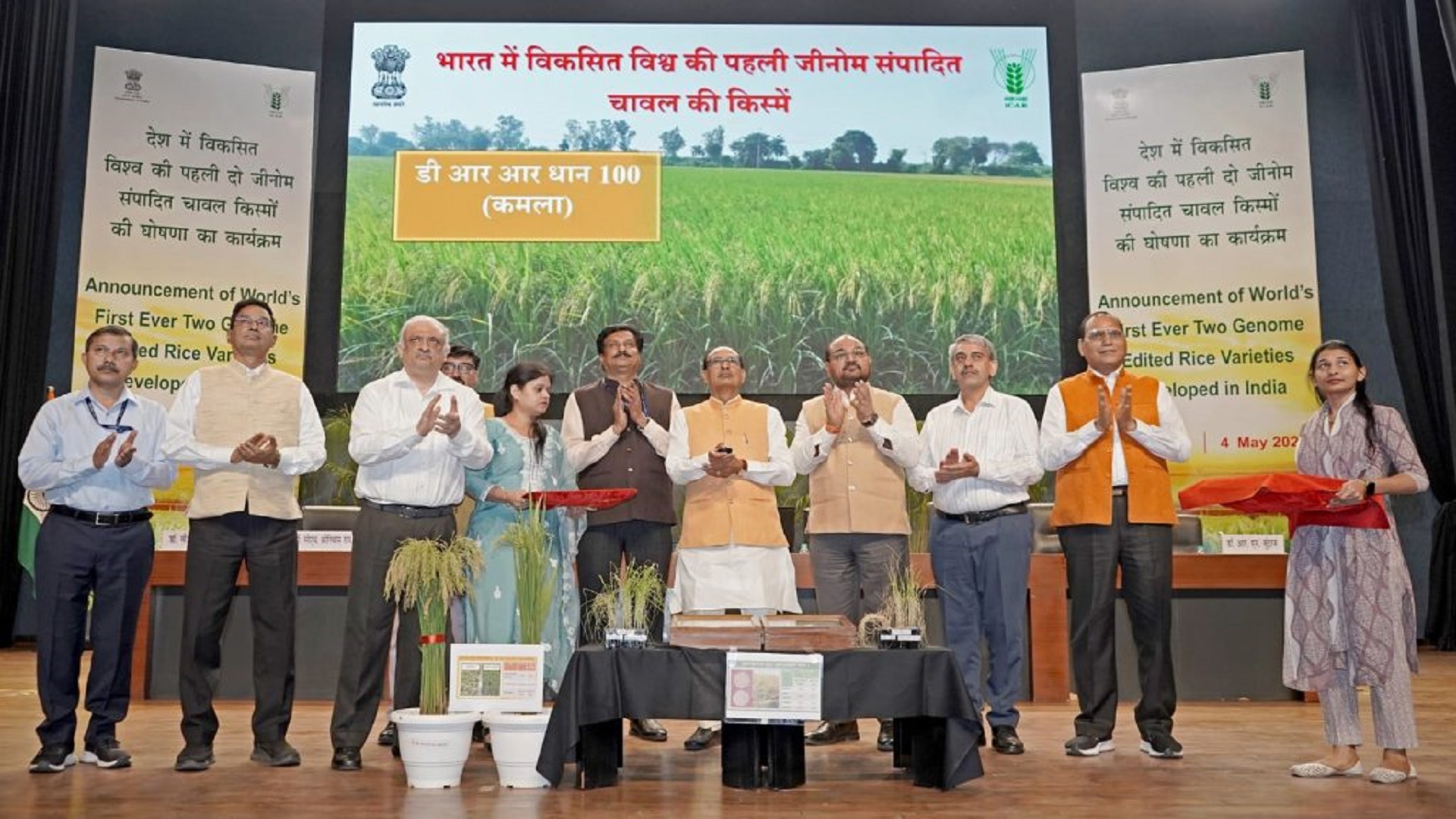
♦ Union Agriculture and Farmers Welfare Minister Shivraj Singh Chouhan announced that India has become the first country in the world to develop genome-edited rice varieties.
♦ Developed by the Indian Council of Agricultural Research (ICAR), the new rice varieties — DRR Rice 100 (Kamala) and Pusa DST Rice 1 — are expected to significantly increase crop yields, improve climate resilience, and reduce water usage.
♦ Developed using CRISPR-Cas-based genome editing technology, these rice varieties involve no foreign DNA insertion and have been approved under India’s biosafety guidelines for general crops under SDN 1 and SDN 2 categories.
♦ They mark a groundbreaking step toward sustainable and climate-resilient agriculture.
♦ He also introduced the “Minus 5 and Plus 10” formula, aimed at optimizing land use.
♦ The development of these varieties began in 2018 under the National Agricultural Science Fund, with a focus on improving two popular rice varieties—Samba Mahsuri and MTU 1010.
♦ The result was two advanced rice types that promise a 19% increase in yield, a 20% reduction in greenhouse gas emissions, and the conservation of 7,500 million cubic meters of irrigation water.
